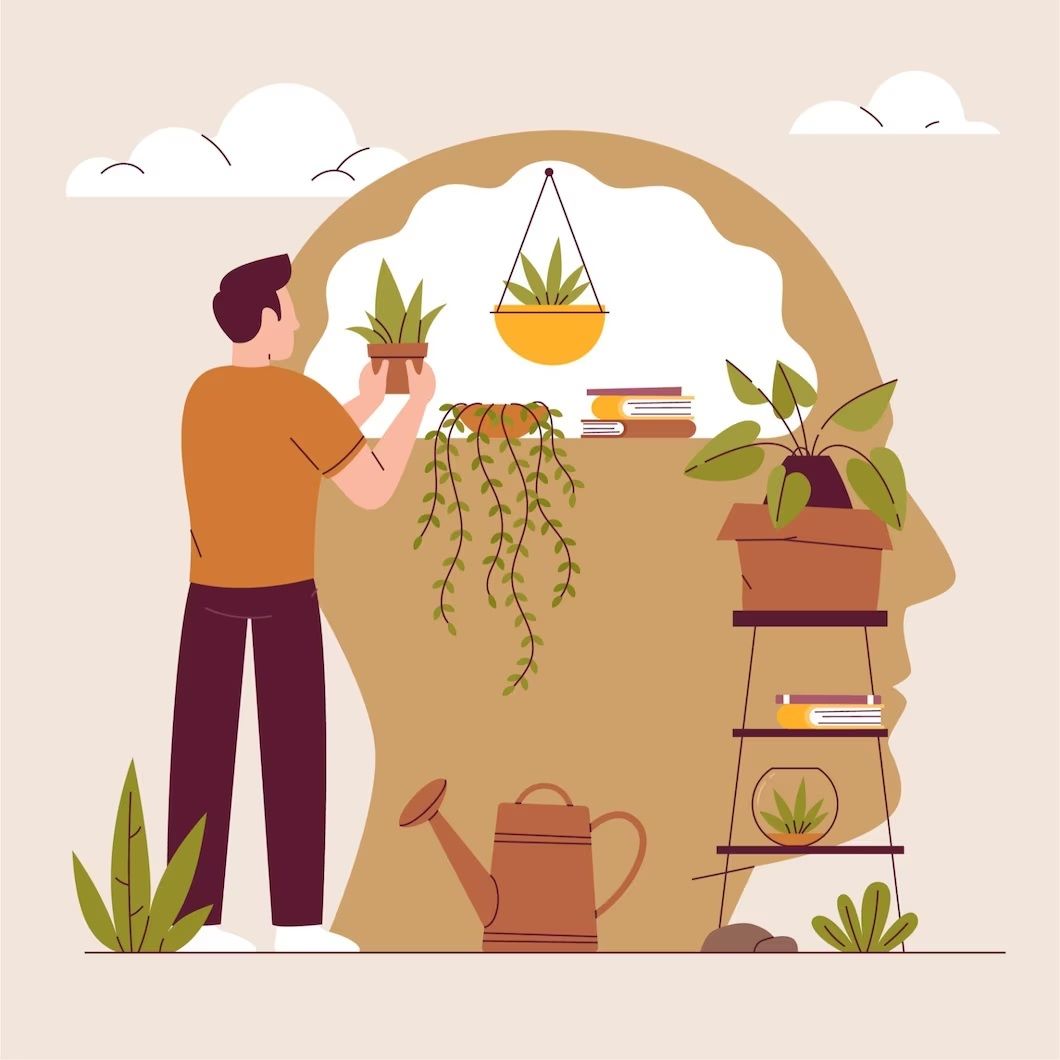The Role of Self-Awareness in Building Confidence
The Importance of Self-Awareness
Self-awareness is the ability to understand our own thoughts, emotions, and behaviors. It is a crucial aspect of personal growth, as it allows us to assess our strengths and weaknesses, identify areas for improvement, and make informed decisions. For instance, if we are aware that we have a tendency to procrastinate, we can take steps to overcome this behavior by setting deadlines, breaking tasks into smaller chunks, and seeking help when necessary. Moreover, self-awareness helps us to build meaningful relationships with others, as we are better able to communicate effectively, empathize with others, and handle conflicts constructively.
However, self-awareness is not always easy to achieve. We often have blind spots, or areas where we lack knowledge or insight into our own personalities or behaviors. These blind spots can lead us to make poor decisions or miss opportunities for growth, as we may not recognize our own limitations or biases. Additionally, self-awareness can be challenging because it requires us to confront uncomfortable truths about ourselves. It can be difficult to acknowledge our flaws or to take responsibility for our mistakes, but doing so is essential for personal and professional development.
Fortunately, there are ways to cultivate self-awareness. One approach is to seek feedback from others, such as colleagues, friends, or family members. They may be able to offer valuable insights into our strengths and weaknesses that we may not have recognized ourselves. Another approach is to reflect on our experiences and emotions, either through journaling, meditation, or talking with a therapist or counselor. These practices can help us to better understand our own motivations and thought patterns, and to identify areas where we may need to make changes. Ultimately, the journey toward self-awareness is ongoing, but it is a worthwhile pursuit that can lead to greater self-confidence, success, and fulfillment in all areas of life.
The Impact of Self-Awareness on Confidence
Self-awareness plays a crucial role in building and boosting one’s confidence. This is because being aware of one’s strengths, weaknesses, likes, dislikes, motivations, and values helps individuals understand themselves better. With self-awareness, individuals are able to set realistic goals and identify areas where they need to improve. This, in turn, gives them a sense of control over their lives, making them confident in their abilities.
Moreover, self-awareness enables individuals to develop self-acceptance and self-love. As they become more aware of their thoughts and emotions, they learn to acknowledge and appreciate themselves more. This results in higher self-esteem and self-confidence. They start to believe in their worth and abilities, and are more likely to take risks and pursue their dreams.
In contrast, lack of self-awareness can have a negative impact on confidence. When individuals are unaware of their own strengths, they might underestimate themselves and their abilities. On the other hand, when they lack awareness of their weaknesses, they might overestimate themselves and become arrogant. This can lead to failure and disappointment, and ultimately, erode their confidence. Thus, self-awareness is an essential ingredient in the recipe for building and maintaining confidence.
Identifying Areas Letting You Down
Identifying areas where you are letting down in life is not always easy, but it is an essential step towards personal improvement. The first step is to take a step back and evaluate your life objectively. You need to assess your strengths and weaknesses, your goals and aspirations, and your habits and routines. Once you have a clear understanding of your current situation, you can start to identify areas where you are falling short. You may find that you lack certain skills or knowledge, or that you are not making the most of your strengths. You may also discover that you have unhealthy habits or limiting beliefs that are holding you back.
One of the most common areas where people let themselves down is in their relationships. Whether it is with family, friends, or romantic partners, relationships can often be fraught with challenges and difficulties. If you find that you are struggling to connect with others, or that your relationships are causing you stress and anxiety, it may be time to take a closer look at your communication skills and emotional intelligence. You may also need to work on building trust and setting healthy boundaries.
Another area where people tend to struggle is in their careers. Whether you are unhappy with your job or feel like you are not making progress towards your career goals, it is important to take a critical look at your skills and experience. You may need to acquire new skills through training or education, or you may need to network more and seek out new opportunities. It is also important to be honest with yourself about your career aspirations and whether you are taking the right steps to achieve them. By identifying areas where you are letting yourself down and taking proactive steps to improve, you can overcome obstacles and achieve greater success in life.
Building a Stronger Self-Awareness
Building a stronger self-awareness is essential for achieving personal growth and development. It starts with being honest with oneself about who they are, what they want in life, and their strengths and weaknesses. Practice self-reflection regularly and identify areas that require improvement or modification. Work on self-improvement and strive to become a better version of oneself. One can also ask trusted friends or family members for honest feedback, which can help identify blind spots and enable better self-awareness.
Self-awareness also involves understanding how one's thoughts, emotions, and actions affect themselves and others. One can practice self-awareness by paying attention to their feelings and emotions, acknowledging them, and understanding where they come from. Being mindful of one's actions and how they impact others can help build empathy and improve relationships. Taking responsibility for one's actions and being accountable for the consequences also fosters better self-awareness.
Building self-awareness is a lifelong journey that requires consistent effort and self-reflection. It is crucial to accept and embrace one's strengths and weaknesses and work towards improving every day. Personal growth and development can only occur when one has a deep understanding of themselves and their place in the world. Building self-awareness can lead to improved decision-making, better relationships, and a more fulfilling life.
Understanding Your Strengths and Weaknesses
Understanding your strengths and weaknesses is a crucial step towards achieving success, both personally and professionally. Identifying your strengths allows you to leverage them to your advantage and excel in areas where you have a natural ability. On the other hand, recognizing your weaknesses helps you identify areas that require improvement and help you address them. Once you understand your strengths and weaknesses, you can craft a plan to help you achieve your goals.
Self-awareness is key when it comes to understanding your strengths and weaknesses. It requires an honest evaluation of your skills and abilities, as well as your limitations. Take some time to reflect on what you're good at, what challenges you face, and where you need to improve. Consider asking for feedback from colleagues or friends to gain more insight into your strengths and areas that need development. Once you have identified your unique strengths and weaknesses, you can begin to develop strategies to capitalize on them.
Understanding your strengths and weaknesses helps you to create a personal development plan that is tailored to your needs. It provides clarity on where to focus your energy and resources, helping you to develop a roadmap to success. With this information, you can also plan your career path, identifying areas to strengthen, and where you can add the most value. By embracing your strengths and weaknesses, you empower yourself to take control of your life and achieve your goals.
Gaining Insight into Your Behaviors
At times, it can be hard to understand why we react to certain situations in a particular way. However, gaining insight into our behaviors can help us become more aware of the triggers that cause us to act out. One way to do this is by keeping a behavior diary. By writing down our reactions and the circumstances surrounding them, we can begin to see patterns and understand why we react in certain ways. Self-reflection is also another effective way of gaining insight into our behaviors. Through self-reflection, we can question our behavior and identify any underlying fears, anxieties or emotional traumas that may be hidden beneath the surface.
Another way to gain insight into our behaviors is to receive feedback from others. Listening to the feedback that our friends, family and colleagues provide can help us see ourselves in a different light. By understanding how others perceive us, we can adjust our behavior to be more effective in our interactions with others. Conducting a 360-degree review, where we ask those around us to provide feedback on our behavior and actions, can also help us gain a more comprehensive understanding of ourselves and our behaviors.
Finally, developing a psychological understanding of our behaviors can help us gain insight into why we act the way we do. This approach involves examining the psychological theories that our behavior may be rooted in. It can be helpful to work with a therapist or counselor who can help us explore our behavior in relation to our experiences, emotions, and thought processes. Through this exploration, we can gain a deeper understanding of our behaviors and obtain the tools we need to change them if necessary.
Investing Time Into Positive Reflection
In today's fast-paced society, it's easy to get caught up in the hustle and bustle of everyday life. We often overlook the importance of taking time to reflect on our actions, thoughts and feelings. Reflecting on our experiences can help us gain a greater understanding of ourselves, our relationships, and the world around us. It can help us identify areas for personal growth and development, and allow us to make informed decisions going forward.
When we reflect positively, we focus on recognizing our strengths and accomplishments rather than dwelling on our weaknesses and failures. This can help boost our self-confidence and self-esteem, improving our overall well-being. Positive reflection can also enhance our relationships with others, as we become more mindful of our interactions and how they affect those around us. By reflecting on positive experiences, we can also cultivate gratitude and appreciation for the good things in our lives.
Investing time into positive reflection can also lead to greater resilience and adaptability. When we face difficult situations, having a positive outlook and reflecting on the lessons learned can help us bounce back more quickly and effectively. It can also help us approach new challenges with a growth mindset, recognizing that failure is an opportunity for growth and development. By taking a reflective approach to life, we can cultivate a sense of purpose and fulfillment and make the most of every experience.
Gaining Momentum Through Positive Affirmations
Positive affirmations can be a valuable tool in helping individuals gain momentum towards achieving their goals. By repeating a positive statement to oneself, individuals can begin to believe it, which can lead to an increase in confidence and motivation. By focusing on the positive rather than the negative, individuals can shift their mindset and better tackle challenges.
One important aspect of using positive affirmations is to make them specific and believable. Rather than saying something like “I am the best at everything,” individuals should focus on concrete actions or qualities they possess, such as “I am a hard worker and always strive to do my best.” By making the affirmation specific and achievable, individuals are more likely to believe it and take action to make it a reality.
Positive affirmations can also be used to counter negative self-talk. Many individuals have an inner critic that only sees their faults and shortcomings. By using positive affirmations to focus on their strengths and accomplishments, individuals can begin to drown out that negative voice and embrace a more positive mindset. Through consistent use of positive affirmations, individuals can gain momentum towards achieving their goals and living a happier, more fulfilling life.
Developing Your Self-Awareness
Developing self-awareness is an essential skill if you want to achieve personal growth and success in life. Self-awareness is the ability to recognize your thoughts, emotions, and behaviors and understand how they impact your life and your relationships with others. By developing self-awareness, you can identify your strengths and weaknesses, clarify your values, and become more conscious of your actions and decisions. This awareness can help you make positive changes in your life and improve your relationships with others.
One way to develop self-awareness is to practice mindfulness, which is the practice of being present and fully engaged in the current moment. Mindfulness can help you observe your thoughts and emotions without judgment, which can increase your self-awareness and allow you to respond to situations more effectively. Additionally, journaling can be a helpful tool for developing self-awareness. By writing down your thoughts and feelings, you can gain insight into your patterns of behavior and thought, and identify areas for improvement.
Finally, seeking feedback from others can be an effective way to develop self-awareness. Feedback from trusted friends, family members, or colleagues can help you identify blind spots and provide insight into your impact on others. It is important to be open and receptive to constructive criticism, and to use it as an opportunity to learn and grow. Developing self-awareness is an ongoing process, but by practicing mindfulness, journaling, and seeking feedback, you can become more aware of yourself, your strengths, and areas for improvement.
How Developing Self-Awareness Improves Confidence
Developing self-awareness is crucial when it comes to improving confidence. Self-awareness involves knowing who you are, what motivates you, and what your strengths and weaknesses are. By being self-aware, you become more confident in your abilities, as you understand what you’re capable of achieving. When you know your strengths, you can focus on them more, which can lead to further development and growth. When you’re aware of your weaknesses, you can work on improving them, making you more well-rounded and capable of handling a variety of situations.
Self-awareness also allows you to better understand your limitations. Knowing what areas you struggle in can help you avoid situations where you may not succeed, which can ultimately help build confidence. Additionally, being self-aware allows you to be more realistic about your abilities. This can prevent you from becoming overly confident, which may lead to underestimating challenges or even failure. When you’re realistic about what you can and can’t do, you can set realistic goals, which are much more attainable, ultimately leading to greater confidence.
Finally, self-awareness helps you understand the impact that your behavior and actions have on others. This can be especially important in both personal and professional relationships. Being aware of how others perceive you can help you make decisions that positively impact those around you, which can ultimately boost your confidence as well. Additionally, understanding how you impact others can help you make better decisions, as you become more mindful of the consequences of your actions. This can ultimately lead to greater confidence in yourself and your decision-making abilities.
Fostering Self-Belief and Motivation
Fostering self-belief and motivation can be a complex task, but it is crucial for success in many areas of life. One important factor is to cultivate a growth mindset, which involves embracing challenges, persevering through obstacles, and seeing failure as an opportunity to learn and improve. This can help individuals to feel more capable and resilient, as well as to stay motivated even when faced with setbacks or setbacks.
Another key aspect of fostering self-belief and motivation is to set clear and achievable goals. This involves not only identifying what you want to achieve, but also breaking it down into smaller, actionable steps and committing to making progress each day. It can also be helpful to track your progress and celebrate your successes, no matter how small they may seem. This can help to increase self-confidence and encourage continued effort and progress.
Finally, it is important to surround yourself with supportive people and resources, whether this means seeking out a mentor or role model, joining a supportive community or group, or simply seeking out information and tools that can help you reach your goals. Having a strong support system can help to provide motivation, guidance, and inspiration, as well as to help you stay accountable and committed to your goals. By focusing on these key areas, individuals can foster self-belief and motivation and achieve success in their personal and professional lives.
Links Between Self-Awareness and Mental Resilience
Self-awareness and mental resilience have been found to be intimately linked. Self-awareness is the ability to be conscious of your emotions, values, and beliefs. This awareness is crucial for mental resilience. When you are self-aware, you can understand your own emotions and how they affect your behavior. This allows you to better cope with stressful situations, as you can identify your own triggers and implement effective coping mechanisms.
Mental resilience is the ability to bounce back from challenging situations. Resilient people are better equipped to deal with adversity and manage stress. Research has shown that self-awareness is a key factor in mental resilience. This is because self-awareness allows you to take a step back and objectively assess the situation. You can identify the problem, understand your own emotions and reactions, and then work towards a solution. This ability to step back and analyze the situation can be invaluable in overcoming obstacles and building mental resilience.
Self-awareness and mental resilience are two essential components for a happy and successful life. By being self-aware, you can better understand your own emotions and reactions, and learn to cope with stress and adversity. This can help you build greater mental resilience, which in turn can help you succeed in all areas of your life. Whether you're dealing with a difficult situation at work, or facing personal challenges, self-awareness and mental resilience can help you navigate through the tough times and come out stronger on the other side.
Self-Awareness as a Key to Success
Self-awareness is a fundamental skill to achieve success in both personal and professional life. It refers to the ability to understand your strengths, weaknesses, emotional triggers, and values. When you are self-aware, you are in control of your emotions and behaviors. You can identify what motivates you, what upsets you, and how your actions impact others. Self-awareness also allows you to recognize when you need to improve and seek help or feedback without feeling attacked or defensive.
Self-awareness helps you make better decisions and manage stress more effectively. When you know your limits and capabilities, you can set realistic goals and avoid overcommitting or jeopardizing your well-being. You can also anticipate and cope with stress triggers, knowing your coping mechanisms and seeking support when necessary. Self-awareness also helps you develop empathy and positive relationships with others, as you can understand and respect their perspectives, feelings, and boundaries.
Self-awareness is not a fixed trait but a continuous process of reflection and learning. It requires honesty, curiosity, and an open mind. You can enhance your self-awareness by journaling, meditating, seeking feedback, and asking yourself questions such as "What are my strengths and weaknesses?", "What are my core values and how do they guide my actions?", "What are my emotional triggers and how do I manage them?"]



